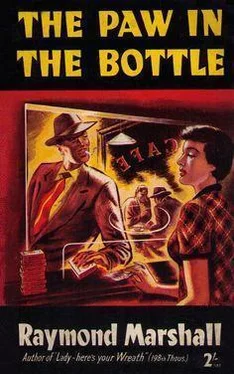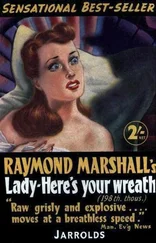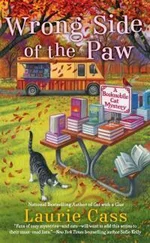On the morning following Blanche’s death he had bathed, shaved and breakfasted with his usual pale calm. His mind was preoccupied with the two main interests in his life: Blanche and money.
He had met Blanche for the first time at her wedding, although he had seen her several times on the stage and had admired her from a distance. Wesley had given him no warning of his marriage. Wesley and he had been partners for a number of years. Together they had developed the Wesley-Benton Aircraft Factory from a small and experimental idea into four hundred acres of machine shops, runways and hangars. The drive admittedly had come from Wesley, but Benton’s contribution had been none the less important. In his quiet, pale way, he had a brilliant flair for organization. He could turn chaos into orderly efficiency with a stroke or two of his pen. He could handle difficult contractors, placate irritable ministers, soothe nervous and suspicious hankers. He undertook all the petty, irritating jobs (vitally important in spite of their pettiness) where Wesley’s temperament would have failed. The partnership had been successful, although each man disliked the other intensely, and where Wesley was concerned it had been profitable. Benton was never able to keep money for long. He was a spendthrift and his share of the profits was invariably lost in gambling and unsound undertakings which he could easily be persuaded to finance.
Some six years ago Wesley had wandered into Benton’s office and had announced casually that he was getting married. Benton offered his congratulations and was curious to see the bride; curious and inclined to sneer. Who in the world would want to marry a cold fish like Wesley, he wondered. Probably some horsey-looking woman whose only claim to fame was an occasional photograph in the Tatler or Sketch. Benton loathed that type of woman. But when Wesley introduced him to Blanche he had the shock of his life.
Benton was a profligate. His headmaster had once said before the whole school that he had a mind like a body full of sores. That was when Benton had been involved in a particularly unpleasant scandal and had been publicly expelled. Women were as necessary to him as drugs to an addict. He had admired Blanche when he had seen her on the stage; at close quarters she bowled him over. He hadn’t been in her company for long before he was obsessed by her. She had a sensual, animal magnetism that caught him by the throat. This was no passing infatuation; no idle lusting after a pretty woman. It went much deeper than that. It was like a virulent germ in his blood; a craving that tortured him; a suffocating feeling every time he heard her name; a pounding of blood in his ears at the sound of her voice.
When Wesley volunteered for the Royal Air Force, Benton, unfit for any of the Services, did not hesitate to take advantage of his absence. By then Blanche was drinking heavily and Benton willingly became her drinking partner. Drink had no effect on him, but it rotted Blanche mentally and physically.
Somewhat to Benton’s surprise his obsession for Blanche showed no signs of waning. He had felt like this before with other women, but once he had become intimate with them the desire for their company wilted. But not so with Blanche. The more he saw her, the more intimate they were, the more he desired her: it was like throwing petrol on a smouldering bonfire. He would have married her if he had had the money. Blanche was willing and kept urging him to put his money affairs in order, refusing to use her own money so long as she could use Wesley’s.
From a grimy, erotic beginning, their association developed into an odd but deep-rooted kind of love. Benton led a lonely life. He was not popular and had no friends. There was something about him that other men distrusted, and Blanche was his only companion.
When he unfolded the newspaper and saw Blanche’s photo-graph staring at him from the printed page and read the banner headline that told of her murder, he went deathly pale. He sat motionless, the paper gripped in his long, rather beautiful fingers, his eyes closed.
He remained still for a long time. His mind paralysed by the sense of his loss. When eventually he did move it was to walk with slow, halting steps to the sideboard. He poured himself out a glass of brandy, drank it and refilled his glass. Then he returned to his chair and re-read the account of the murder. And while he read his face went to pieces and he wept.
Later, he telephoned Wesley’s flat, but there was no answer. He put through a call to the factory and learned that Wesley hadn’t arrived. There was nothing else he could do, and he sat staring at the wall opposite, his teeth chewing on his pale underlip, his hands clenched in his lap.
He was still sitting in the same position an hour later when Wesley telephoned.
Wesley was curt; his voice without feeling. He asked Benton to look after the factory.
‘I shan’t be coming out for some time. You can get on without me. There’s no urgent work. If you want me you can reach me through my club.’
Benton was stupefied that Wesley should suddenly shirk his responsibilities. He dared not let him know how stricken he was at the news of Blanche’s death. He imagined that Wesley had no idea of his relations with Blanche. Wesley could make things awkward for him if he liked. He was guaranteeing a big overdraft at Benton’s bank. If he ever got wind of what Benton and Blanche’s relations had been, Benton reasoned, he might easily withdraw the guarantee.
Benton had intended to make some excuse and take a few days off. The thought of going to the factory sickened him. He wished to remain in his flat and mourn for Blanche. He couldn’t even bring himself to express sympathy for Wesley’s loss. Neither of the men mentioned Blanche, and as soon as Wesley had made sure that Benton would look after the factory he rang off.
Benton had but a vague idea of how he got through the next two days. He took no interest in the affairs of the factory although he was at his desk at his usual time. He looked ghastly; white, drawn and dazed. Fortunately, he had capable assistants who realized he was suffering from a shock of some kind and relieved him of all work except where his signature was essential.
He attended the West London Court when Harry Gleb made his brief appearance and studied Harry with pale revengeful eyes. It gave him some satisfaction to see the fear and suffering on Harry’s face.
The same evening he went to Segetti’s Restaurant off Jermyn Street. He was known in the grill-room, as Blanche and he went there often when Wesley worked late at the factory. Benton had a sudden nostalgic desire to go there that night, to sit in his usual corner and to commune with Blanche in spirit. But as soon as he entered the crowded grill-room and saw Segetti bearing down on him he realized he had made a mistake. Without Blanche at his side he felt naked in this atmosphere of riches, good food and smart talk. With Blanche, the restaurant had seemed an exciting and friendly place, but now it made him nervous, undermined his confidence. It was a sharp reminder that from now on he was going to be alone. He had no business in a luxury restaurant on his own. He became immediately an oddity: a fish out of water without some richly furred and smartly dressed woman at his side.
Already people were glancing curiously at him as he stood self-consciously in the doorway. Already he knew he had created a problem for Segetti. But it was too late to slink away, and he walked quickly down the red-carpeted aisle towards Segetti, who was coming to greet him.
‘My usual table,’ he said, his pale eyes venomous. ‘I shall not stay long.’
‘Of course, Mr. Benton,’ Segetti said immediately, and as he led the way to a vacant table, he murmured: ‘Poor madam, we shall miss her sadly. A dreadful, monstrous thing.’
Читать дальше











